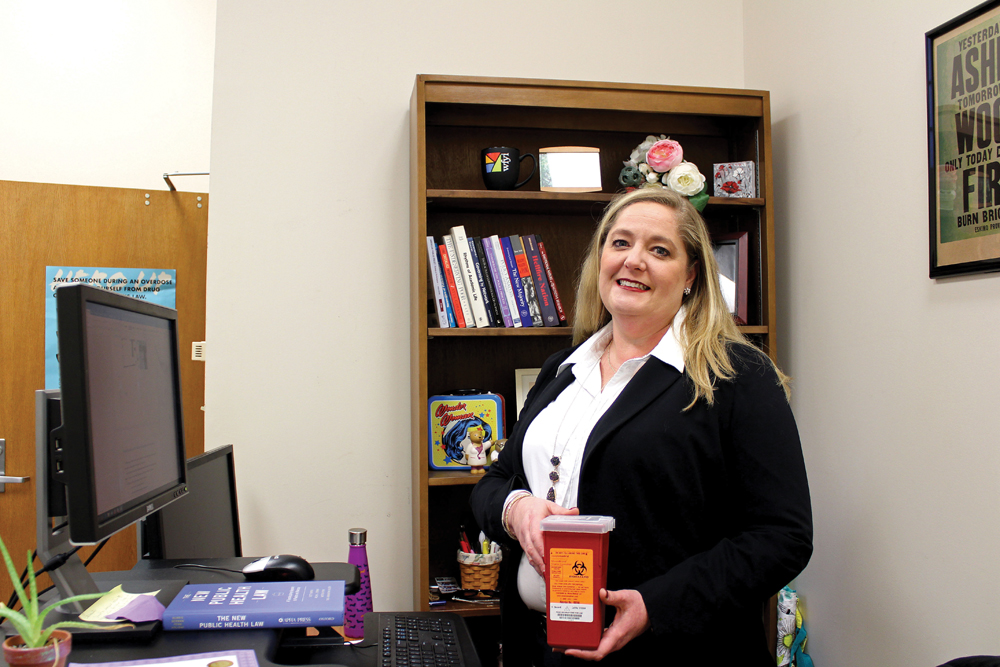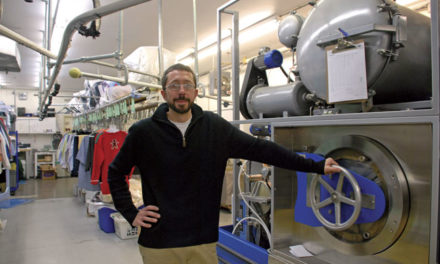
BY JANET MANDELSTAM
The Centers for Disease Control and Prevention (CDC) estimates that in 2016 there were 2.4 million people living with hepatitis C in the United States. Carrie Lawrence, director of Project Cultivate, an Indiana University School of Public Health program, wants people to know the disease can be prevented and, if diagnosed, it can be treated. What’s needed, she says, is increased access to testing and medication.
Project Cultivate helps communities build their capacity to respond to the use of injected drugs, a leading cause of the spread of hepatitis C. The affliction is caused by a virus and is spread by direct contact with human blood. Left untreated, hepatitis C can lead to liver disease.
According to the Indiana State Department of Health, there were 148 reported cases of hepatitis C in Monroe Country in 2017.
The highest risk populations, Lawrence says, are people who inject drugs and their sexual partners. Other risk factors include needle sticks in health care settings, being born to a mother with hepatitis C, and receiving a blood transfusion or organ transplant before July 1992.
The CDC recommends that everyone born between 1945 and 1965 be tested for hepatitis C. Adults in this age group are five times more likely to have the disease than other adults. The reasons are not completely understood, though most are believed to have become infected in the 1960s through 1980s when transmission of hepatitis C was highest.
Among the questions Project Cultivate is trying to answer, Lawrence says, are, “How do we increase testing among high-risk groups and how do we prevent another outbreak?”
Project Cultivate is helping Indiana counties establish syringe exchange programs to halt the spread of the disease. “Syringe exchange is a simple, effective way to prevent hepatitis C,” Lawrence says. “But it is a labor-intensive process with not a lot of public support or funding, and it has to be set up county by county.”
Indiana began permitting exchange programs in 2015 after an outbreak of HIV in Scott County. Monroe County established a program in 2016, and county commissioners have voted to extend it through the end of 2019.
Access to testing and clean needles is just part of the effort to combat hepatitis C. “Making sure that people have access to medication is essential,” Lawrence says. As a result of significant advances in treatment, anti-viral medications now can rid the body of the virus, according to the Mayo Clinic.
“We know what to do,” Lawrence says. “We can keep people healthy.”










